


Masculinities and engaging men for gender equality
Anna Deb Kunová






Masculinities and engaging men for gender equality
Anna Deb Kunová


Social norms and structures define gender roles, often limiting the agency of individuals. To achieve gender equality, engaging men and boys is critical.
This involves men examining the roles they occupy in their communities, cultures, economies and politics, and understanding how these roles impact the lives of women and girls.
UNDP efforts to involve men in its gender equality portfolio primarily focus on halting violence against women and girls, and promoting women’s economic empowerment and political participation. This work frequently involves partnerships with other United Nations agencies, particularly UN Women and UNFPA, whose programmes also often include interventions to promote shared responsibility for reproductive health, parenting and domestic work.
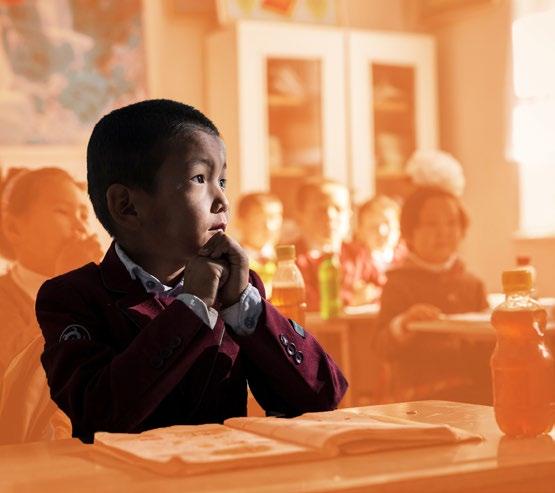

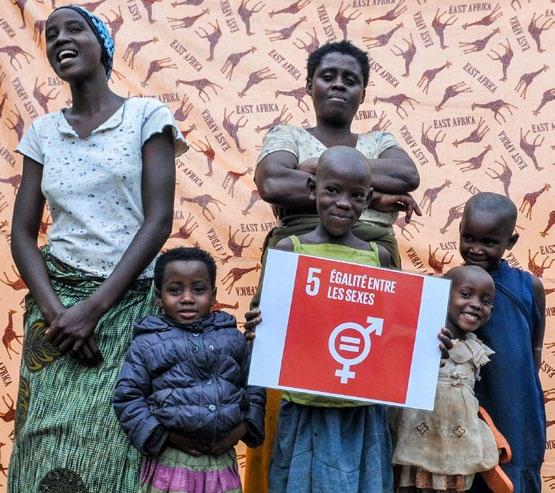

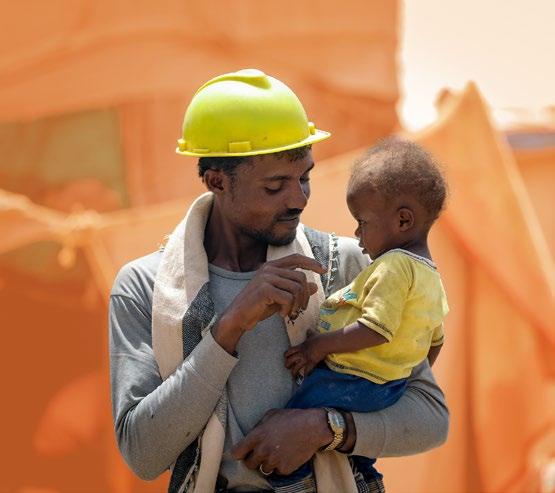

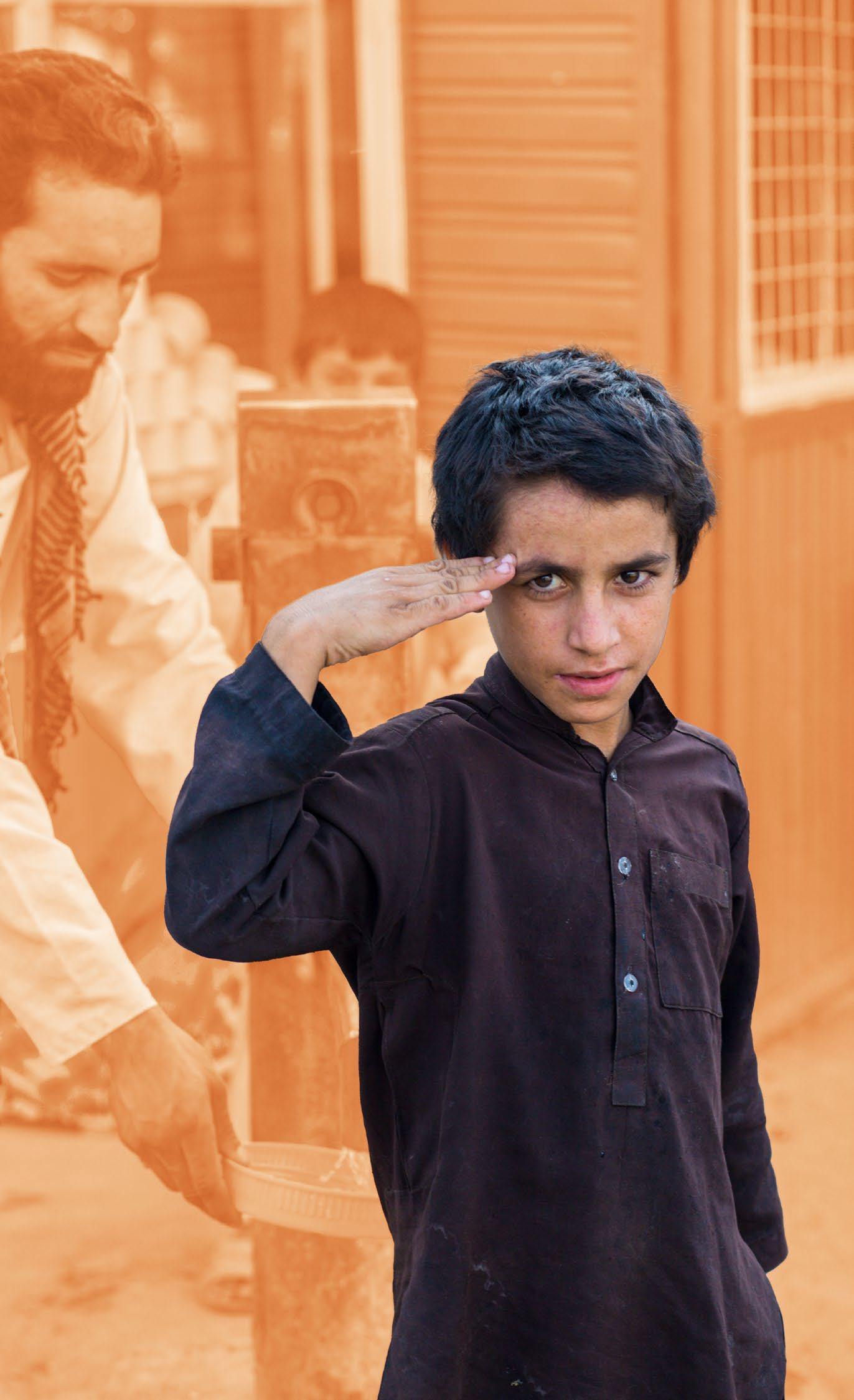

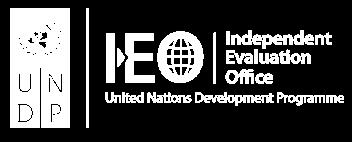
Masculinities: range of roles, behaviors and attributes associated with being a men and considered appropriate for boys and men in a given society. They are expressed personally through behaviour and propagated culturally through images and stories and institutionally through laws, policies and procedures.
Toxic masculinity: practices and expectations of manhood that promote dominance, aggression and misogyny and devalue relationships and emotions. It is similar to patriarchal masculinity which aims to maintain gender inequalities, with violence against women and girls being its most extreme expression.
Positive masculinity: promoting constructive, non-violent and fair forms of masculinity that advance gender equality. It challenges traditional norms that sustain sexism, dominance and aggression, advocating instead for behaviors and attitudes that foster gender justice and mutual respect among all genders.
Social norms: unwritten rules about the way people are expected to behave and what is considered as acceptable behaviour in a given context. Usually there are explicit and implicit rewards associated with compliance with norms, and sanctions and retributions for breaching them. Changing social norms requires shifts at the level of society or wider community, rather than only at the individual level. Discriminatory social norms and stereotypes reinforce gendered identities and determine power relations that constrain women’s and men’s behaviour in ways that lead to inequality.
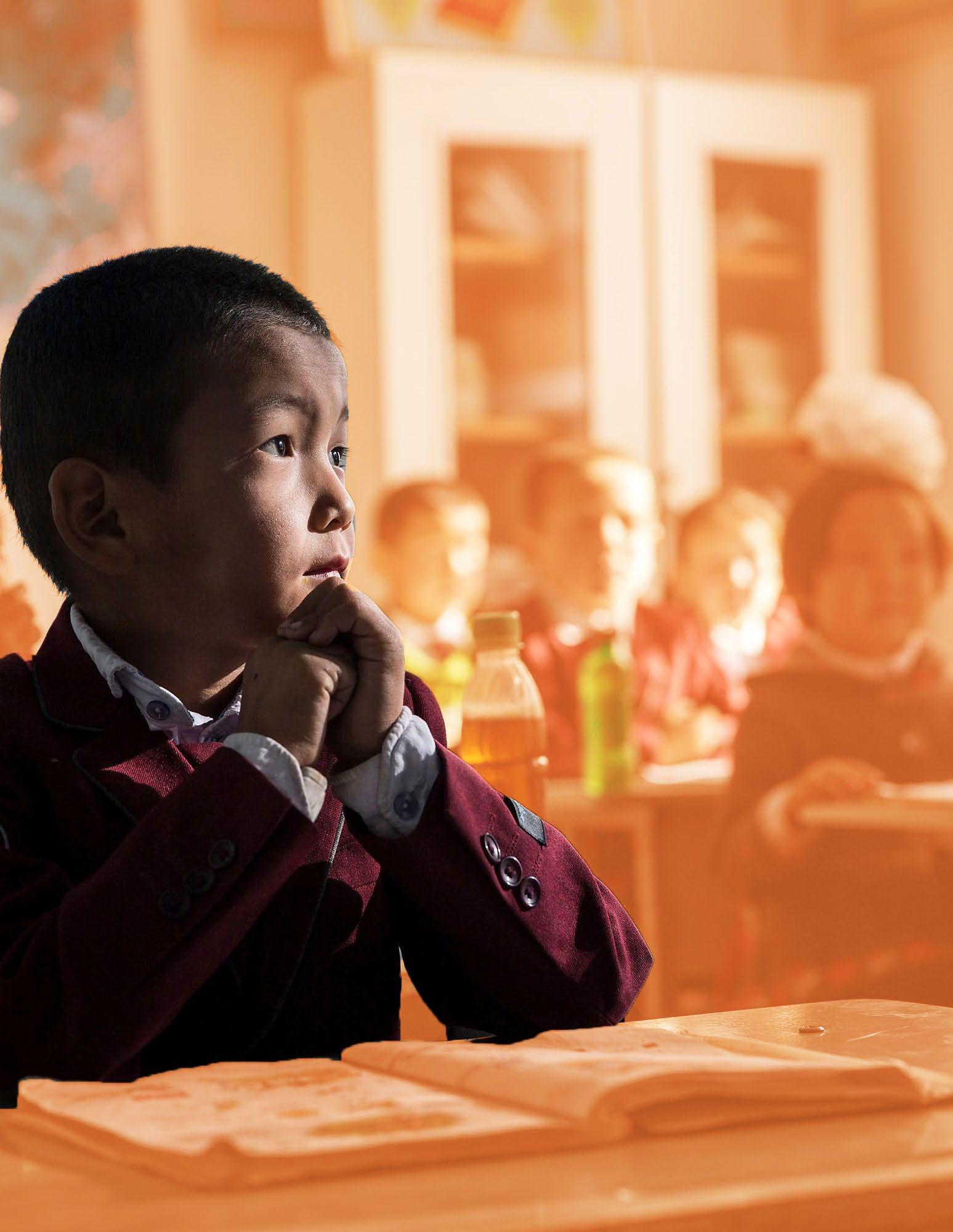


The most effective projects have combined addressing gender dynamics with the underlying roots of men's behaviours – such as economic stressors, mental health issues or substance abuse.
Gender inequalities, in all their manifestations, do not exist in isolation, but interplay with other structural inequalities, power imbalances, social, economic and political factors.
Political upheavals often shift gender dynamics
- towards more or less equality. In the Western Balkans, for example, the 1990s conflict was deemed to contribute to the subsequent repatriarchalism of local society, reaffirming a sense of masculinity emphasizing violence and aggression, and shifting norms regarding rape, gender-based violence and everyday sexism.
Other evaluations documented the link between toxic masculinities and underpinning economic stressors, mental health issues or substance abuse.
Several evaluations highlighted the need to acknowledge the complexity of masculinities and address them in a holistic manner. Evidence shows good results of projects that combined a focus on masculinities and explicit gender equality-oriented work with interventions on:
• Employment support and livelihood skills;
• Conflict prevention and resolution (community and individual levels);
• Family counselling and mental health care;
• Psychosocial support regarding violence and anger management;
• Care related to substance abuse.


In BOSNIA AND HERZEGOVINA, UNFPA worked with perpetrators of sexual violence. This included addressing the legacy of the historically rooted approach to sexual violence related to the 1990s conflict.

In CAMBODIA, a joint UN Women, UNFPA, and UNV project addressed key risk factors for gender-based violence, such as childhood experience of violence and quarrelling with partners. The intervention engaged adolescents and parents/ caregivers in parallel workshop sessions, employing participatory methods to transform social norms and harmful masculinities, decrease harsh punishment and increase supportive parenting.

In ALBANIA, a joint UNDP, UNFPA and UN Women project established “Be a Man” Clubs, to promote healthy gender relations among youngsters. The key focus of the Clubs’ non-formal education activities covered topics of gender, reproductive health and violence, but also alcohol and drug use.
In MYANMAR, NEPAL and TAJIKISTAN, the Stepping Stones/Creating Futures approach explicitly linked efforts to change gender norms with livelihoods training to alleviate the economic constraints of male and female participants. It focused on interpersonal communication, power and family dynamics, while using cash grants for income-generating activities. The approach has been tested in a range of countries and has often been successful in shifting gender-related attitudes and reducing gender-based violence.
In PAPUA NEW GUINEA, a joint UN Women and UNICEF project aimed to prevent gender-based violence through addressing negative gender norms and other risk factors of childhood abuse. The project engaged male and female participants in community conversations about gender-based violence, and offered activities promoting community peace-building, positive relationships skills and addressing trauma.


Successfully addressing social norms has required a focus beyond the individual and household level to mobilize communities and target key institutions.

Many initiatives engaging men in promoting gender equality focus on their individual identities, roles and relationships. While there is strong evidence that such micro-oriented actions have brought results at the individual and/or household level – including increased knowledge and changed attitudes of participants or improved relationships – evaluations consistently show that this is rarely enough to affect wider practices and social norms.
For system-wide change, it is necessary to address gender inequality as a community issue in which men are involved as part of the broader community, rather than in isolation. Application of a ‘socioecological’ model, encompassing individual, household, community and society, creates an enabling environment for transformative results. Community approaches that involved both women and men were also reported to increase men’s motivation to participate, often a serious bottleneck. However, several evaluations notes that the effectiveness of community-wide approaches can be limited by disproportionately short implementation time and weak links between actions at individual, community and institutional levels.



In LEBANON, a UN Women programme supported adoption of the Anti Sexual Harassment Bill by working with several state institutions, and carrying out antiharassment workshops for private sector employers which led them to adopt workplace policies against sexual harassment. The programme worked with community-based organizations to operationalize the Bill through awareness sessions, advocacy and selfdefense lessons at community level.

In TANZANIA, a UN Women project carried out community-level trainings, aimed primarily at women, on horticulture, small scale trade and women’s rights. Witnessing the benefits, some men from the community (primarily participants’ husbands) joined the farmers’ associations and got involved in advocacy activities on women’s rights and gender-based violence.
In KENYA, a UN Women project to strengthen individual women’s capacity to participate in decision-making and economy also reached their male family members to address genderbiased attitudes at household level and ran community-wide awareness raising campaigns. This community approach also contributed to social cohesion by targeting beneficiaries from both refugee and host communities.

UNDP/Aude Rossignol
03 Ensuring gendertransformative results


To ensure gender-transformative results, initiatives engaging men have created partnerships with women’s rights organizations and involved women in their design and implementation.
Engaging men and boys for gender equality does not invariably lead to transformation in gender relations. Initiatives working with men may unintentionally reinforce gender inequality, stereotypes, or certain gender/social norms if they do not incorporate a feminist approach centered on the redistribution of power, resources and opportunities.
One evaluation revealed that an initiative to protect women from harm and violence perpetrated by male tuk-tuk drivers (as a part of a broader intervention in Egypt) succeeded in decreasing harassment, but inadvertently bolstered paternalistic guardianship and gender stereotypes of women’s lack of agency.
Furthermore, male-oriented initiatives are often considered innovative, which is attractive to donors and can draw attention and resources away from hard-won spaces for women and girls. Some projects were criticized for shifting the focus onto the needs of male participants at the expense of intended female beneficiaries.
Evidence shows that United Nations agencies have utilized multiple strategies to ensure that initiatives involving men are designed to achieve gender-transformative results. This translated to:
• Engaging women in design and implementation;
• Building meaningful partnerships with womenled organizations and feminist groups, ensuring that such collaboration is not tokenistic and does not perpetuate genderunequal power dynamics;
• Raising awareness of donors on how projects on masculinity can work alongside and complement existing feminist initiatives;

UNDP/Aude Rossignol



In LEBANON, a UN Women initiative shifted from engaging an international NGO to a local feminist NGO as the umbrella organization for partnerships, which enabled community-based organizations to become members of wider gender networks. This step aimed to balance the initiative’s focus on work with men and encourage local ownership.
GLOBAL: The MenEngage Alliance, comprising several United Nations agencies and NGOs, has built partnerships and undertaken joint activities with a range of key women’s rights and social justice organizations. A UN Women-led evaluation of MenEngage activities highlights the joint work of the Alliance with women’s groups to present a voice of solidarity.
In BANGLADESH, CAMBODIA, INDONESIA, PAPUA NEW GUINEA and VIETNAM, a joint regional UNDP, UN Women, UNFPA and UNV programme to transform harmful masculinities engaged both male and female participants. In this way, the interventions were informed by the voices of women and girls whose lives had been affected by violence.



The engagement of men and boys has been successfully facilitated by fostering peer-based connections, creating safe, non-judgmental spaces and involving role models.
Peer groups can have a strong influence on attitudes, behaviours and the creation/change/ sustenance of social norms. Many successful interventions requiring men and boys to critically reflect on their masculinities established such groups (in the form of men’s clubs, associations and networks) to provide members with the necessary support. These groups were also important for men and boys to build healthy, respectful and equitable relationships that continued beyond the end of a programme and contributed to sustainable change.
The evidence emphasized the importance of establishing safe spaces where men can openly talk about their personal experiences, including their vulnerabilities and difficulties in conforming to or defying societal role expectations. It also underscored the need for facilitators of such spaces to maintain a non-judgmental style of communication, promoting openness and comfort during the shared reflection process.
Another powerful mechanism for changing social norms involved engaging leaders and role models. This builds on the behavioural science principle of “messengers”, i.e., that people are more likely to change behaviours when inspired by the example of someone they trust. Many successful initiatives collaborated with celebrities, such as sport stars, community leaders and politicians, to denounce violence against women and girls and promote respectful behaviours.
A similar principle was used in ‘positive deviant’ approaches, where influential community gender equality champions were engaged to provide personal guidance to support their peers.


In JAMAICA, the Spotlight Initiative created safe spaces for engaging men across diverse segments of society. The programme helped to unpack negative conceptions of masculinity and explored gender equitable versions, allowing members to understand their role in creating safe and equal spaces for women and become advocates.
In GEORGIA, a joint UNDP, UN Women and UNFPA project engaged nationally recognized rugby stars in dialogue about the role of men, handling anger and violence against women. The players showcased their support during national and international matches and visited regions, including remote areas. This was effective in engaging boys and young men on gender issues and modeling positive behaviour.

In VIET NAM, a UN Women project extensively engaged with men perceived as moral allies with high standing in their communities, including older Communist Party leaders. These men were considered able to raise the profile of the project and influence other men.

In MALI, the Spotlight Initiative established the ‘Model Husbands Club’ as a voluntary, open and participatory space for discussion built on the values of active listening, equality and respect. It was a powerful force for change, raising awareness of women’s and children’s rights and even preventing domestic violence and child marriage in some communities.
In PALESTINE, a UN Women initiative engaged ‘positive deviants’ – male and female gender equality champions influential within their own communities. They were trained to visit couples in their own homes to promote sharing of household duties and childcare and provide practical advice and guidance. This approach was found to be an effective contributor to behaviour change.


While ‘fatherhood’ has served as a strategic entry point to engage men for gender equality, it has limitations.

Many initiatives identified fatherhood as a concept which men were interested in, and successfully used it as an entry point to involve men in gender equality initiatives. Appealing to men as fathers was found as particularly suitable because it showed the benefits of gender equality for men as well as for women, and addressed men in a positive way – as family members rather than potential perpetrators.
Several sources mentioned the importance of working with fathers, and parents in general, to end intergenerational cycles of violence and strengthen the family unit as a model place for equitable, loving relationships.
In many cases, this approach was also successful in gaining buy-in from more conservative governments and minimizing societal backlash.
However, a focus on fatherhood may have limited the ability of interventions to challenge patriarchal power structures within the family, such as male guardianship and men’s presumed entitlement to control women.
The evaluation of a regional UN Women programme mentioned concerns from some feminist groups and women’s organizations that campaigns centered around male roles further entrenched heteronormative dynamics and risked stigmatizing single mothers and their children.
Another reported limitation of this approach rested in its strong focus on individual and household domain (see Lesson 2).



In TURKEY, a UN Women intervention aiming to end gender-based and family violence engaged fathers in weekly sessions to address their own experience of violence, issues of masculinity, and the exercise of power. The evaluation recognized positive results of the initiative and recommended it be replicated and scaled up.

In HONDURAS, the Spotlight Initiative ran a campaign challenging norms related to men’s emotional openness and traditional notions of masculinity by showing children’s comments about the dad they wanted.
In GRENADA, the same campaign promoted positive parenting practices designed to end family abuse through messages in print, on radio, and on buses travelling through the country, including remote areas.
In EGYPT, a UN Women intervention shifted focus from fathers to both parents. Bringing husbands and wives together to discuss gender issues was a novel and effective approach, and for some couples it was the first time they had engaged in such conversations together.
In GEORGIA, a media campaign on the role of fathers, launched as part of a joint UNDP, UNFPA and UN Women initiative, was so popular that participating journalists developed their own campaign titled “Daddy, Read Me a Book”. This successfully continued beyond the initial United Nations support.
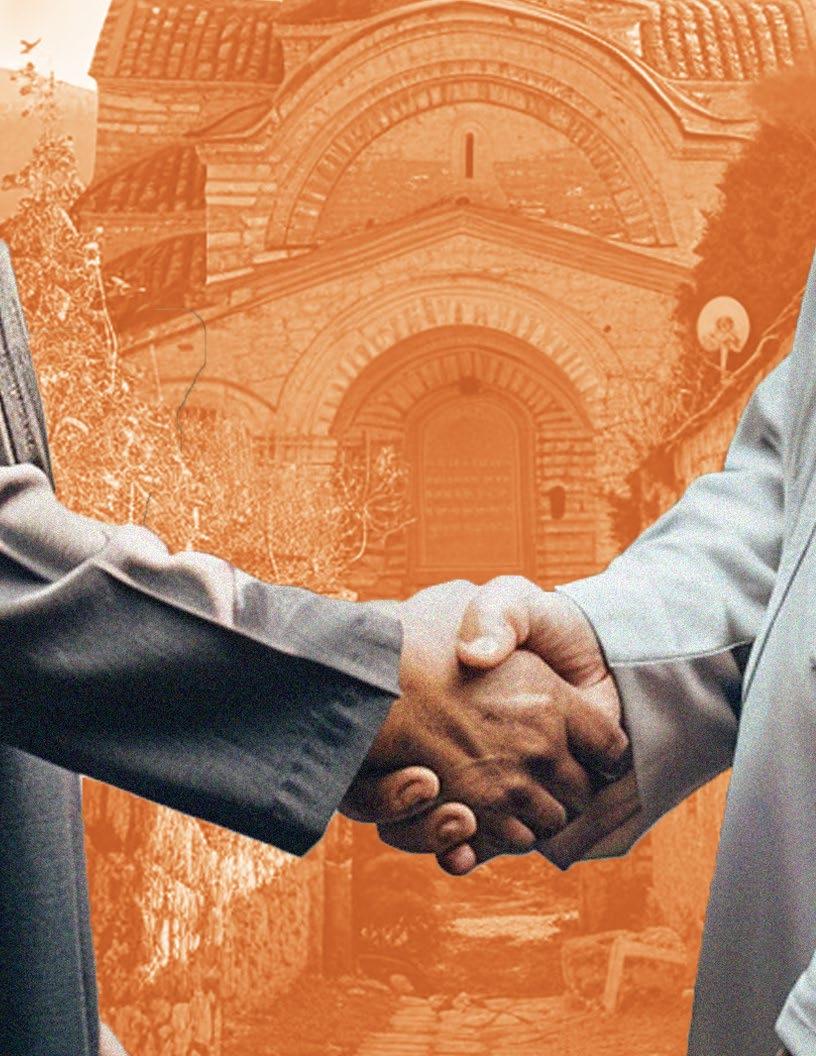


Many initiatives have strongly benefitted from engaging with faith-based organizations, which can be powerful agents of social change although they often foster patriarchal views.
In many contexts, religion has played a vital role in shaping cultural, social, economic and political norms, as well as gender roles and masculine/feminine identities (and often enshrined in national policies and laws). Due to their longstanding presence and service in diverse communities, and the trust and respect they often enjoy, faith-based institutions are among the most powerful agents of social change.
Evaluative evidence showed that engaging with religious and traditional leaders on gender-related issues – typically efforts to end gender-based violence – proved to be good practice, as they could influence entire communities including men and boys. Many interventions also engaged churches and faith-based organizations as project partners or used religion-based arguments – such as stories from Prophet Mohammed’s life – to support gender-related advocacy.
However, a lot of faith-based organizations’ views and actions are rooted in patriarchal traditions, and some evidence showed examples of conservative pushback from these organizations (such as opposing laws penalizing gender-based violence, raising the age of marriage or endorsing female genital mutilation). In other instances, collaboration with religious leaders was halted when it became apparent that the right framing of key messages on harmful practices could not be ensured, or that discrepancies between messages endangered the coherence of the campaign.
To work with this complexity, it proved important to establish long-term collaborations with religious authorities to ensure that they felt heard and maintain their buy-in. Other strategies involved supporting the role of women faith leaders and strengthening advocacy.



Examples of interventions collaborating with faith-based organizations and religious leaders

In EL SALVADOR, the Spotlight Initiative developed a course for pastors on the prevention and detection of femicide, child or teenage pregnancy, and the construction of non-violent masculinities. Given the mistrust in public services, women and girls increasingly turned to churches to access essential care services.
In KOSOVO and GEORGIA, UNFPA forged a partnership with religious leaders from both Orthodox and Muslim communities to condemn conflict-related sexual violence in their constituencies.
In MALAWI, the Spotlight Initiative supported the mobilization of a thousand women faith leaders to address harmful attitudes in their communities. One key outcome was their agreement to assist survivors to access counselling services through their religious institutions.

The Reflections series synthesizes lessons from past evaluations and evaluative studies to support organizational learning about what works and what doesn't in different development contexts. The aim of the series is to provide relevant, useful and accessible lessons to UNDP country offices and the wider community of development practitioners.
Development of this paper leveraged a combination of AI-led searches in the UNDP AIDA (Artificial Intelligence for Development Analytics) tool and humanled analysis. This paper is based on 58 evaluations and case studies issued by UNDP, UN Women and UNFPA, and used a further 19 research papers and reports. It might not reflect recent developments not captured in evaluations.

INTERESTED IN REFLECTIONS ON OTHER TOPICS?
Download all Reflections papers on our website:


https://web.undp.org/evaluation/reflections


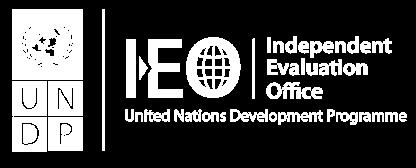
UNDP, UN Women (2020) Conflicting Identities: The Nexus between Masculinities, Femininities and Violent Extremism in Asia, https://www.unwomen.org/en/digitallibrary/publications/2020/03/conflicting-identities-the-nexusbetween-masculinities-femininities-and-violent-extremism-in-asia
United Nations General Assembly, Human Rights Council, Working Group on discrimination against women and girls (2023) Men’s accountability for gender equality: Guidance document of the Working Group on discrimination against women and girls.
UN Women (2023) Men, Masculinities and Humanitarian Settings: A mapping of the state of research and practice-based evidence, UN Women, https://www.unwomen.org/en/digitallibrary/publications/2023/08/men-masculinities-andhumanitarian-settings
UN Women (2022) Final evaluation of UN Women’s regional MENA programme: ‘Men and Women for Gender Equality’, https://gate.unwomen.org/Evaluation/Details?evaluationId=11636
UN Women (2020) Work with Men and Boys for Gender Equality: A Review of Field formation, the evidence based and future directions, https://www.unwomen.org/en/digitallibrary/publications/2020/11/discussion-paper-work-with-menand-boys-for-gender-equality
LESSON 1
Spotlight Initiative: Session One - Latin America and Caribbean: Embracing Healthy Masculinities for the Prevention of Violence Against Women and Girls,
United Nations (2022) Supporting the Western Balkans’ Collective Leadership on Reconciliation: Building Capacity and Momentum for the Regional Youth Cooperation Office, https://www.un.org/peacebuilding/content/pbfirf-250-supportingwestern-balkans-collective-leadership-reconciliation-buildingcapacity
UNFPA Evaluation Office (2018) Evaluation of UNFPA support to the prevention, response to and elimination of gender-based violence and harmful practices 2012-2017, EECA Regional Case Study, https://www.unfpa.org/corporate-evaluation-unfpasupport-prevention-response-and-elimination-gender-basedviolence-and
UN Women (2023) Men, Masculinities and Humanitarian Settings: A mapping of the state of research and practice-based evidence.
UN Women (2022) Final evaluation of UN Women’s regional MENA programme: ‘Men and Women for Gender Equality’.
UN Women (2021) Final Evaluation Report: Stepping Up Solutions to Eliminate Violence Against Women and Girls in Asia and the Pacific (2017-2021).
UN Women (2020) Work with Men and Boys for Gender Equality: A Review of Field formation, the evidence based and future directions.
UN Women (2020a) Policy Brief No 23.: Working with Men and Boys for Gender Equality: State of Play and Future Directions, www.unwomen.org/sites/default/files/2021-11/Policy-briefWorking-with-men-and-boys-for-gender-equality-en.pdf
UN Women Tanzania (2022) Country Programme Evaluation
UN Women Uganda (2022) Evaluation Report: Women lead and benefit from sustainable and inclusive peace and security in Uganda 2018 – 2021, https://africa.unwomen.org/en/digitallibrary/publications/2022/08/evaluation-report-women-lead-andbenefit-from-sustainable-and-inclusive-peace-and-security-inuganda-2018-2021

LESSON 2
Spotlight Initiative (2018) Planning Guidance: Working with Men and Boys.
UNDP, UNFPA, UN Women & UNV (2017) Evaluation of Partners for Prevention - Regional Joint Programme for Violence against Women and Girls Prevention in Asia and the Pacific Phase II, 2014 – 2017’
United Nations General Assembly et al. (2023): Men’s accountability for gender equality: Guidance document of the Working Group on discrimination against women and girls.
UN Women (2023) Men, Masculinities and Humanitarian Settings: A mapping of the state of research and practice-based evidence.
UN Women (2022) Final evaluation of UN Women’s regional MENA programme: ‘Men and Women for Gender Equality’.
UN Women (2020) Work with Men and Boys for Gender Equality: A Review of Field formation, the evidence based and future directions.
UN Women Jordan (2023) Country Portfolio Evaluation –Strategic Note 2018 – 2022.
UN Women Kenya (2020) Evaluation Report of Women’s Leadership, Empowerment, Access & Protection in Crisis Response: Promoting the Empowerment of Women and Girls within the Humanitarian- Development Nexus in Kenya.
UN Women MCO Caribbean (2019) Evaluation of UN Women MCO Caribbean’s Social Mobilization Programme to end GenderBased Violence in the Caribbean (2014-2017).
UN Women Tanzania (2022) Country Programme Evaluation

LESSON 3
Spotlight Initiative. Session One - Latin America and Caribbean: Embracing Healthy Masculinities for the Prevention of Violence Against Women and Girls.
Spotlight Initiative (2018) Planning Guidance: Working with Men and Boys.
UNDP et al. (2017) Evaluation of Partners for PreventionRegional Joint Programme for Violence against Women and Girls Prevention in Asia and the Pacific Phase II, 2014 – 2017’
UNFPA Evaluation Office (2018) Evaluation of UNFPA support to the prevention, response to and elimination of gender-based violence and harmful practices 2012-2017.
United Nations General Assembly et al. (2023) Men’s accountability for gender equality: Guidance document of the Working Group on discrimination against women and girls,’, United Nations 8-12 May 2023
UN Women (2023) Men, Masculinities and Humanitarian Settings: A mapping of the state of research and practice-based evidence.
UN Women (2022) Final evaluation of UN Women’s regional MENA programme: ‘Men and Women for Gender Equality’.
UN Women (2022a) UN Women Safe Cities Evaluation Final Report’, UN Women 2022
UN Women (2019) UN Women Programme Eid Bi Eid I & Ii: Supporting Women in Host Communities and in Jordan’s Refugee Camps Through Prevention and Response to Gender-Based Violence and Promotion Of Self-Reliance and Social Cohesion


LESSON 4
Spotlight Initiative (2021) Lessons and Promising Practices of the Spotlight Initiative: Engaging with Men and Boys to Transform Patriarchal Masculinities.
https://www.spotlightinitiative.org/publications/engaging-menand-boys-knowledge-product
UNDP et al. (2017) Evaluation of Partners for PreventionRegional Joint Programme for Violence against Women and Girls Prevention in Asia and the Pacific Phase II, 2014 – 2017.
UNFPA Evaluation Office (2018) Evaluation of UNFPA support to the prevention, response to and elimination of gender-based violence and harmful practices 2012-2017.
UN Women (2023) Men, Masculinities and Humanitarian Settings: A mapping of the state of research and practice-based evidence.
UN Women (2022) Final evaluation of UN Women’s regional MENA programme: ‘Men and Women for Gender Equality’.
UN Women (2021) Final Evaluation Stepping Up Solutions to Eliminate Violence Against Women and Girls in Asia and the Pacific (2017-2021).
UN Women (2015) Evaluation of the UN Joint Programme to Enhance Gender Equality in Georgia.
UN Women MCO Caribbean (2019) Evaluation of UN Women MCO Caribbean’s Social Mobilization Programme to end GenderBased Violence in the Caribbean (2014-2017).
UN Women Tanzania (2022) Country Programme Evaluation.
UN Women Uganda (2022) Evaluation Report: Women lead and benefit from sustainable and inclusive peace and security in Uganda 2018 – 2021’.
LESSON 5
Spotlight Initiative (2021) Lessons and Promising Practices of the Spotlight Initiative: Engaging with Men and Boys to Transform Patriarchal Masculinities.
Spotlight Initiative (2018) Planning Guidance: Working with Men and Boys.
UN Women (2022) Final evaluation of UN Women’s regional MENA programme: ‘Men and Women for Gender Equality’.
UN Women (2020) Work with Men and Boys for Gender Equality: A Review of Field formation, the evidence based and future directions.
UN Women (2020b) Ending Violence Against Women in The Western Balkans and Turkey: Implementing Norms, Changing Minds – Final Evaluation.
UN Women (2015) Evaluation of the UN Joint Programme to Enhance Gender Equality in Georgia.


Spotlight Initiative (2021) Lessons and Promising Practices of the Spotlight Initiative: Engaging with Men and Boys to Transform Patriarchal Masculinities.
Spotlight Initiative (2021b) Engaging Faith-based Religious Leaders in the Spotlight Initiative.
Spotlight Initiative (2020) Spotlight Initiative Mid-term Assessment Report Using ROM Review.
Spotlight Initiative (2018) Planning Guidance: Working with Men and Boys.
Spotlight Initiative: Embracing Healthy Masculinities for the Prevention of Violence Against Women and Girls.
UNFPA Evaluation Office (2018) Evaluation of UNFPA support to the prevention, response to and elimination of gender-based violence and harmful practices 2012-2017.
UN Women: ‘Evaluation of the UN Joint Programme to Enhance Gender Equality in Georgia Final Report,’ UN Women 2015
UN Women (2022) Final evaluation of UN Women’s regional MENA programme: ‘Men and Women for Gender Equality’.